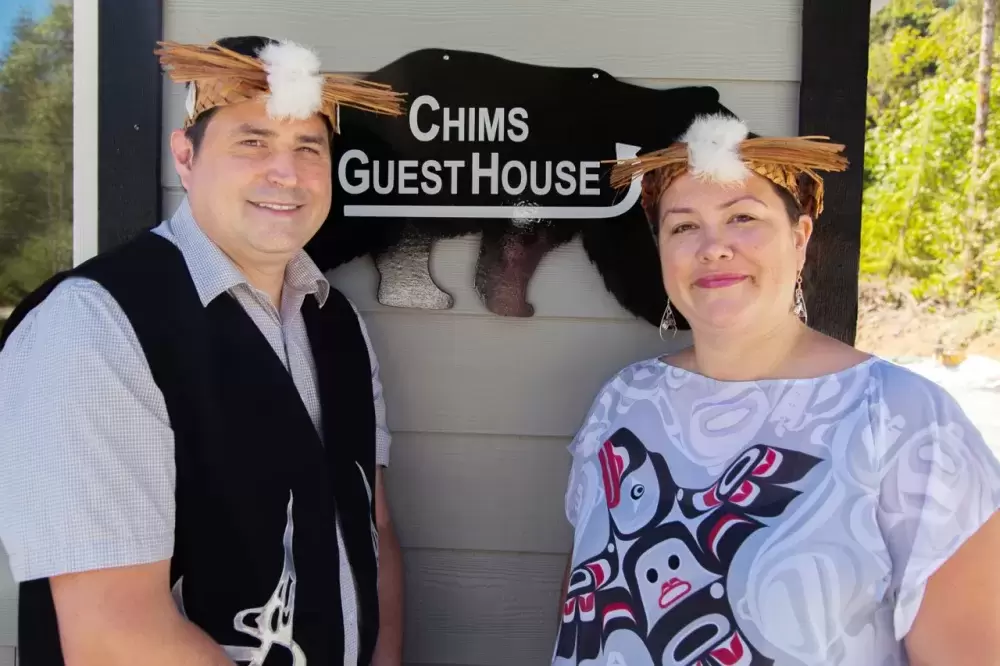Help is on the way.
But it remains to be seen how much of an impact federal financial assistance announced on Friday will have on some Indigenous tourism businesses that are run in Nuu-chah-nulth territory.
The Canadian government announced on Friday, June 12 it would be providing an additional $133 million to support Indigenous businesses through the pandemic and into recovery.
This funding includes $16 million that will be specifically utilized for a stimulus development fund to assist Indigenous tourism businesses. This money will be distributed by the Indigenous Tourism Association of Canada (ITAC), which has been lobbying for more federal support for the past few months.
Marc Miller, the minister of Indigenous Services, felt it was necessary for his government to assist Indigenous businesses who have been reeling since pandemic restrictions were enforced.
“Indigenous businesses are the driving force of many local economies,” Miller said. “With this additional support, Indigenous communities and businesses will have the flexibility they need to respond to their unique economic needs through this difficult time.”
Gord Johns, the MP for Courtenay-Alberni, said Friday’s announcement was welcome news.
“New Democrats have been calling on the government repeatedly to support these Indigenous business owners and their workers since April,” he said. “It's encouraging that they have finally agreed to help support Indigenous businesses across the country.”
Johns, however, would like to see funding handed out as quickly as possible, especially to those who are part of the Indigenous tourism sector.
“Indigenous tourism in Canada is growing incredibly quickly but, as an emerging and vulnerable sector of the economy, it's crucial that these business owners and workers get direct assistance now,” Johns said. “They have already waited months for help and continue to face tremendous financial uncertainty.”
Johns also believes even more federal funding will be necessary for Indigenous businesses to survive.
“The tourism season has started and many businesses have to remain closed so further help will be needed over the coming months as we support Indigenous businesses on the path to recovery,” he said.
There are about 1,900 Indigenous tourism businesses across the country. More than 600 of those had applied to ITAC once it was announced grants of up to $25,000 were available.
With previously announced funding, ITAC was only able to assist less than one-third of those businesses who had applied for a grant. But now, with the increased funding detailed last week, ITAC officials will be able to assist all of the 600 plus businesses that registered for support.
Keith Henry, ITAC’s president and CEO, was pleased with the latest funding announcement.
“This $16 million in funding will go a long way to help our Indigenous tourism operators stay in business and in turn support Canada’s tourism industry overall by providing the type of authentic cultural Indigenous experiences which are in demand by visitors domestically and globally,” he said.
Tewanee Joseph, the interim Chief Governance and Partnership Officer with Indigenous Tourism BC, also welcomed the funding announcement. But he also believes further financial support will be required.
“I think the $16 million is a start,” Joseph said. “But when you look at the recovery (plans) there’s going to be a need for so much more.”
Tseshaht First Nation member Naomi Nicholson is one of those who will receive a grant thanks to the latest funding announcement. Nicholson operates a pair of Indigenous businesses that have been shut down since March when the pandemic spread in earnest across the country.
Nicholson has been running the Secluded Wellness Centre, which specializes in massages, for more than eight years. But she’s eligible for one of the ITAC-distributed grants now, as she also runs Chims Guest House, classified as part of the Indigenous tourism industry as it offers Indigenous-themed experiences for visitors.
Nicholson had made a powerful video back in late March, which was widely distributed, on the fact she had no income coming in from either of her businesses. She said Johns sent her a personal message on Friday about the new funding.
“He said, ‘We did it. We were able to get some money and to hold on tight’,” Nicholson said.
Nicholson, however, had already made up her mind not to open up either of her businesses this year. In part to some other funding she was able to secure, Nicholson is doing some renovations on her guest house now in the hopes of providing lodging services starting in 2021.
News she will be soon receiving a $25,000 grant brought relief.
“I’d be in a lot of debt right now if it wasn’t for that,” Nicholson said, adding grant money will go towards paying some of her current bills. “It’s not like I’m going to go on vacation with it.”
She’s unsure how many Nuu-chah-nulth businesses in the tourism sector won’t survive the pandemic, even with grant funding announced last week. That’s because even though provincial restrictions are being lifted, the Nuu-chah-nulth Tribal Council announced last week it would still restrict visitors to its villages in order to keep its residents safe.
“There are jurisdictional issues about who has authority to shut down businesses and clear them to reopen,” Nicholson said.







